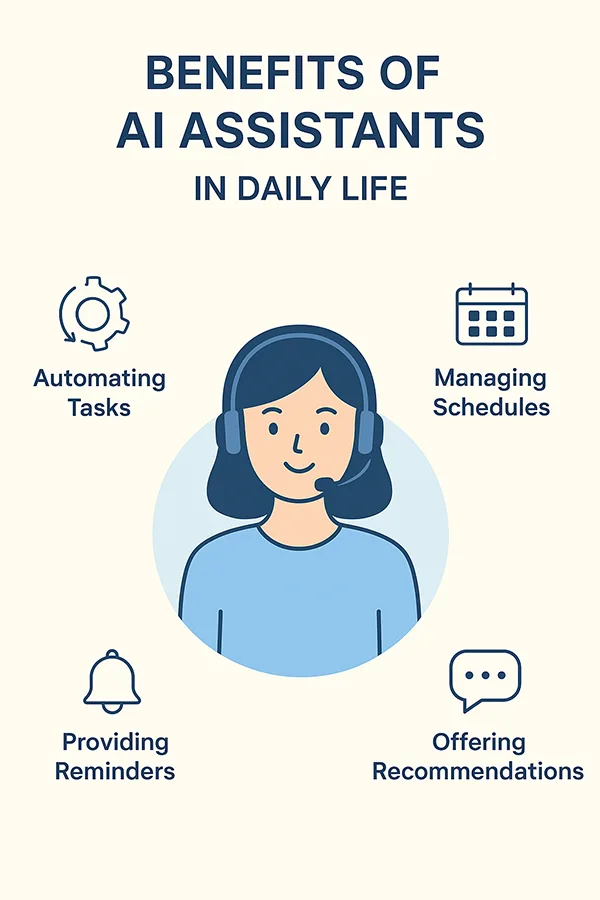KEY TAKEAWAYS
- Smart homes enhance comfort, efficiency, and security with connected devices.
- Wearables and telehealth shift healthcare toward prevention and accessibility.
- AI assistants automate tasks, boosting productivity and reducing daily stress.
- E-commerce and digital payments create faster, safer, personalized shopping.
As of 2025, over 50 % of U.S. households now use at least one smart home device, reflecting how technology has permeated almost every aspect of our lives, from lighting to climate control to app-connected appliances.
Whether it’s a simple set of cooking gadgets that can manage a cleanup or voice assistants making sure we don’t forget. Just as some homes benefit from a device like a bottle washer machine to make life chores more manageable, from the morning routine to feedings at home, etc.
We’ll discuss how these technological enhancements aid in manipulating everyday life tasks more efficiently.
Smart homes are revolutionizing the way we configure comfort, safety, and modern conveniences in our daily lives. Smart technology gives homeowners control over how their living space works for them, whether it is by the touch of a finger or a voice command.
Take Momcozy KleanPal Pro Bottle Washer. While it’s just a new technology, it is making things significantly easier for parents. Smart appliances are more energy efficient, and smart home security cameras and security systems can be monitored from anywhere with Wi-Fi.
Families can manage connected devices for home management conveniently, instead of grocery shopping, for example, or house cleaning. Simple technologies add onto home features for added value of the home, as well as possibly increasing the sustainability of our environments, and maximizing household functionality.
The latest advancements in technology have shifted the locus of healthcare delivery outside of clinical settings. Technologies, such as smartwatches and fitness trackers, can track a range of health metrics, including sleep cycles, oxygen levels, and heart rate.
Telehealth encourages patients and doctors to meet online. Patients receive an online assessment and do not have to go to a doctor’s office for an appointment. Mobile health application assesses patients’ medications, dietary decisions, or even an event, such as arrhythmias, for signs of early disease progression.
This emphasis on healthcare as prevention allows individuals to take ownership of their own health. The real-time data with professional healthcare advice eliminates the boundaries of healthcare, and it allows for healthier, well-informed lifestyle choices across communities and the globe.
AI assistants are changing the way we view productivity by automating our daily activities and enhancing our decision-making capabilities. From booking appointments to managing your inbox, our technology-driven AI assistants are saving as much time and stress as possible.
When it comes to voice-activated systems (Amazon Alexa, Siri, and Google Assistant), smart voice technology allows you to voice command reminders, grocery lists, and smart devices around your home.
From a personal standpoint, applications powered by AI enable you to get personalized recommendations for anything from workouts to budgeting. Allowing the intelligent support of AI assistants to take care of these responsibilities gives individuals the ability to focus on valued work, rather than mind-numbing tasks. Below, you can see benefits of AI assistants.

The rise of e-commerce and digital payments has created quick, personalized, cashless shopping experiences for consumers. Retailers can offer online shopping with tailored product recommendations, same-day delivery options, and fast and easy checkout options, so much so that convenience has become an expectation.
Digital wallets and payment apps have reduced the need for cash, allowing risk to be offloaded and providing a way to pay through a much safer means. COVID-19 heightened consumer choice for touch-free payments and offered yet again safer and faster ways of shopping.
Small and micro businesses can now connect their craft to a global audience rather than to an audience in a theater of overstuffed consumers. This change offers not just a new way to shop for consumers but also allows for greater access to finance.
Technology has transformed our gaming and communication into richer and more instantly accessible experiences. There are streaming services giving you and users the ability to access your favorite films, shows, and music instantly across any device with no limitations associated with traditional media.
Online gaming has created connections between users from all around the world, transforming leisure activities into a social connection opportunity, platforms to connect and build families and communities across borders.
5G is bringing unprecedented opportunities for speed and reliability for online digital interactions. We are fundamentally changing leisure and the ways we connect, and it is clear that technology is the heart of social engagement today.
In summary, technology has impacted nearly all facets of everyday life by changing how we connect, work, shop, and relax. We have experienced smart homes and smart tech varieties for our comfort and ease, and telehealth as a new way to access healthcare.
There is little doubt that these changes are merely indications of technology’s influence to improve not only comfort and efficiency, but choices to live a healthier, more connected, and ultimately more empowered lifestyle.
Smart homes are increasing convenience, security, and energy efficiency. Smart homes give families control, options, and automation through connected devices.
AI assists in eliminating repetitive tasks, scheduling, and reminders so the user can accomplish important work and not have to worry about incomplete tasks.
Wearables, telehealth, and mobile applications widen access to healthcare, allow preventative care, and encourage people to be healthier, all with data being the key factor.
